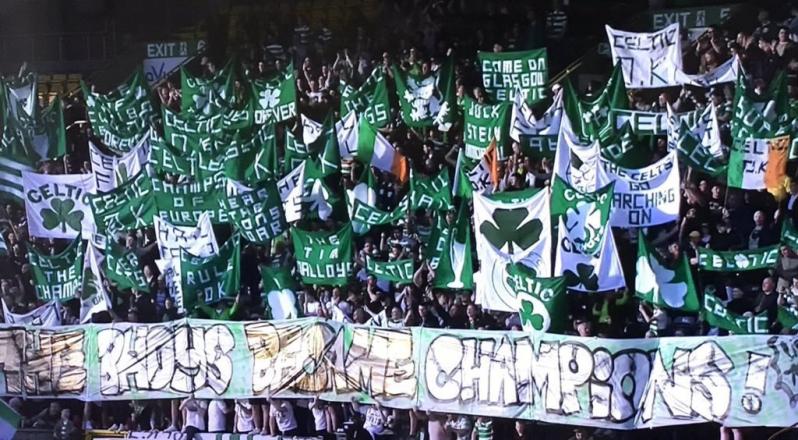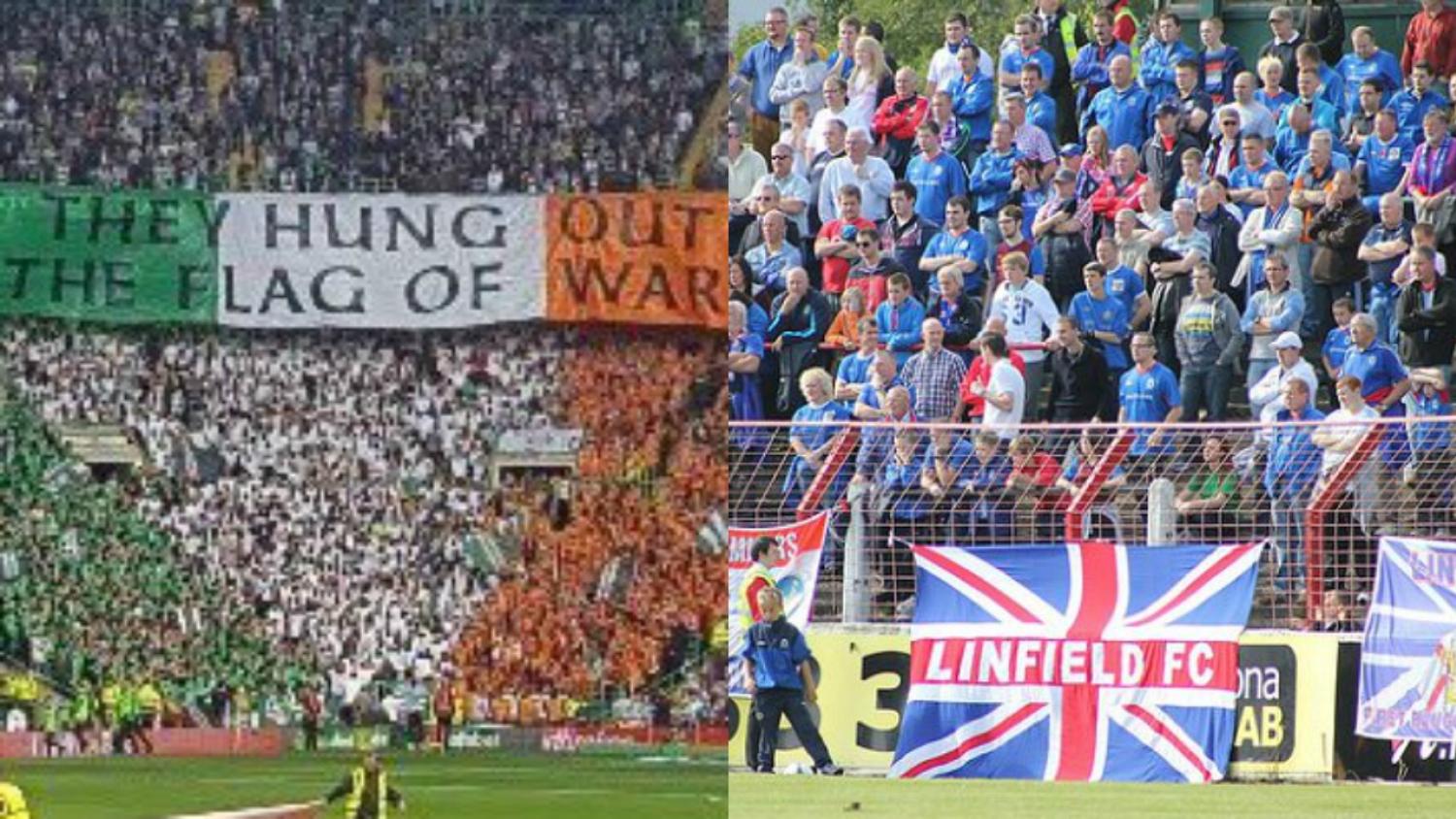Typically, second round qualifiers for the UEFA Champions League are ho-hum affairs featuring clashes between footballing “minnows” from Europe’s lesser leagues and dominant clubs from decidedly top-heavy ones.
Where Scotland’s Celtic FC fits into this picture is up for debate, but what can’t be argued is that its upcoming tie against Linfield FC, a semi-professional club from Belfast, Northern Ireland, will be anything but boring, both on and off the pitch.
This has everything to do with the timing of Friday’s first leg match as well as the histories of the respective clubs, as opposed to how they match up on the pitch.
Indeed, on paper anyway, Celtic are heavy favorites. Even though Brendan Rodgers’ side has a small wage bill compared to, say, English Premier League clubs, the Hoops’ budget still dwarfs that of Linfield, which employs part-time athletes.
The Blues earned their way to the second round of UEFA Champions League qualifying by winning the NIFL Premiership last season and by beating La Florita of San Marino in the first round.
However, the main plot line behind this match isn’t on the pitch, it’s in the social and political climate surrounding the match.
Celtic were founded in 1888 by Irish immigrants to Glasgow, and their initial home base was a Catholic Church in the East End of the city. A segment of the club’s support has historically been linked with Irish Republicanism, and the tricolor flag of the Republic of Ireland is often flown by supporters in the stands.

Photo: @kinghoopy | Twitter
Some Celtic supporters have also been known to sing folk songs about the Irish Republican Army, who are predominantly Catholic.
Celtic supporters sing “Roll of Honour” at Ibrox Stadium, home of Rangers FC
Linfield, on the other hand, has traditionally been viewed as a Protestant club in Belfast. Though the club has taken steps in recent years to eradicate sectarianism within its support — the current playing squad reportedly includes many Celtic fans — the match comes at a time of heightened tensions in the Northern Ireland capital.
Wednesday, July 12 marked the anniversary of the victory of the Protestant King William of Orange over his Catholic counterpart James II in the Battle of the Boyne. The day is commemorated in Belfast and elsewhere by Orange Order marches celebrating the victory, and these events often end in violence between Protestant marchers and Catholics who are offended by their celebrations.
County Grand Master Rt Wor Bro George Chittick sends best wishes to @Linfield_FC for their match - "fortune favours the brave" #Belfast12th pic.twitter.com/GZ9goUz9OB
— Belfast Orangefest (@belforangefest) July 12, 2017
The Police Service of Northern Ireland (PSNI) is frequently busy at this time of year, even though it has been nearly 20 years since the signing of the 1998 Good Friday Agreement put an end to the Troubles in Northern Ireland.
Originally, the Celtic-Linfield match had been scheduled for July 11th, along with the majority of the other second round qualifiers. However, the PSNI and both clubs were concerned about the match taking place so close to the marches. Therefore, it was moved to Friday the 14th.
Also, Celtic refused its allocation for tickets to the match at Windsor Park in Belfast, fearing crowd trouble, much to the chagrin of the Green Brigade supporters’ group.
Still, Linfield manager David Healy, a former player with Celtic’s rival Rangers, stoked the flames of the match when he said his team will “fly the flag” of the Linfield-Rangers “connection”, though he admitted that beating Celtic would be a tough ask for his players.
Going into tomorrow’s first leg match in Belfast, a myriad of questions surround this game to make it the tie of the round.
- Will the match be competitive?
- Will Celtic fans show up anyway, even without an official ticket allocation? There’s no stopping supporters from buying them online…
- Will there be crowd trouble?
- How will the background noise in the stands affect the play on the field?
- Will there be repercussions when the two sides face off in the second leg in Glasgow on July 19th?
For once, a second-round UEFA Champions League qualifier is must-see television.





